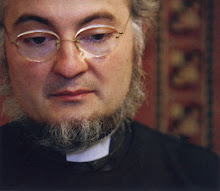
Texto original del padre Fortea
Leyendo ayer a Picaza, que citaba a Messner, estoy de acuerdo en que el paso de una sencilla liturgia como Última Cena, a una gran liturgia sacrificial, supone una transformación impresionante. En eso estamos de acuerdo.
Muchos consideran tal cambio como una traición, como una traición al espíritu del comienzo. ¿Dónde se ha visto que una cena sea una liturgia sacrificial?
Sin embargo, si observamos las cosas en detalle, veremos que esa cena sí que tenía un carácter sacrificial en su misma esencia: se tenía que matar un cordero en honor a Yahveh, para poder celebrar la cena. Y digo celebrar, porque esa cena tenía un carácter ritual por los ritos, preguntas que se hacían y otra infinidad de detalles que no es el momento de exponer.
Si a eso añadimos, que lo que se ofrece en la Última Cena es el Cuerpo y la Sangre de Jesús, entonces las cosas todavía quedan más claras. Donde hay derramamiento de sangre hay sacrificio. Sobre la mesa de la Última Cena, se está recordando, celebrando, simbolizando el sacrificio de un nuevo cordero pascual.
Es cierto que ese cordero se come, pero el aspecto sacrificial es tan inseparable de ese momento como el banquete. Por eso, reducir la Última Cena a un banquete, supone dividir artificialmente lo que en la mente de Jesús no fue así.
Es curioso que las iglesias separadas entre sí por el espacio y la incomunicación (véase la iglesia copta, por ejemplo, y por supuesto el resto de iglesias ortodoxas) entenderán todas ellas que la Última Cena tenía un carácter sacrificial, y que por tanto había que rodear de culto y boato al Misterio.
Entender bien la misa, supone entender bien por qué la Iglesia entera ha evolucionado como lo ha hecho. Comprender bien la Última Cena nos ayuda a comprender por qué las iglesias apostólicas han evolucionado cómo lo han hecho.
No, no ha sido ninguna traición, ha sido el desarrollo lógico de la primera semilla. Todo está en las palabras de Jesús en las de la Cena y las de después de la Cena, antes del prendimiento.
En definitiva, todo este asunto nos lleva a la pregunta: ¿Jesús fue prendido muy a su pesar, o Él se entregó como cordero inmaculado para ser ofrecido por los pecados el Pueblo en oblación de suave olor?
La respuesta es evidente a la luz de la Palabra de Dios: todo estaba profetizado. Su prendimiento no fue el quebrantamiento de los planes humanos de Jesús el profeta, sino que había nacido para eso.
Misa sacrificial y Última Cena
TRASLATION
Reading yesterday to Picaza, who was quoting Messner, I agree in that the step of a simple liturgy like Last Dinner, to a big liturgy sacrificial, supposes an impressive transformation. In that we agree.
Many people consider such a change like a treachery, like a treachery to the spirit of the beginning. Where has been seen that a dinner is a liturgy sacrificial?
Nevertheless, if we observe the things in detail, we will see that this dinner yes that had a character sacrificial in the same extract: it was necessary to kill a lamb in honor to Yahveh, to be able to celebrate the dinner. And I say to celebrate, because this dinner took a ritual character as the rites, questions that were rising and another infinity of details that is not the moment to exhibit.
If to that we add, that what is offered in the Last Dinner is the Body and Jesus's Blood, then the things still remain clearer. Where there is blood spilling there is sacrifice. On the table of the Last Dinner, it is remembered, celebrating, symbolizing the sacrifice of a new Paschal lamb.
It is true that this lamb eats up, but the aspect sacrificial is so inseparable of this moment like the banquet. That's why, to limit the Last Dinner to a banquet, he supposes dividing artificially what in Jesus's mind was not like that.
It is curious that the churches separated between themselves by the space and the isolation (see the Coptic church, for example, and of course the rest of orthodox churches) will understand all of them that the Last Dinner had a character sacrificial, and that therefore it was necessary to surround with cult and show to the Mystery.
To understand well the mass, he supposes understanding well why the entire Church has evolved as it has done it. To understand well the Last Dinner helps us to understand why the apostolic churches have evolved how they have done it.
No, it has not been any treachery, it has been the logical development of the first seed. Everything is in Jesus's words in those of the Dinner and those of after the Dinner, before the arrest.
Finally, all this matter takes us to the question: Was Jesus lit much to his sorrow, or did He surrender like immaculate lamb the People was offered by the sins in oblation of soft smell?
The answer is clear in view of the God's Word: everything was prophesied. His arrest was not the breaking of the human plans of Jesus the prophet, but he had been born for that.

No hay comentarios:
Publicar un comentario